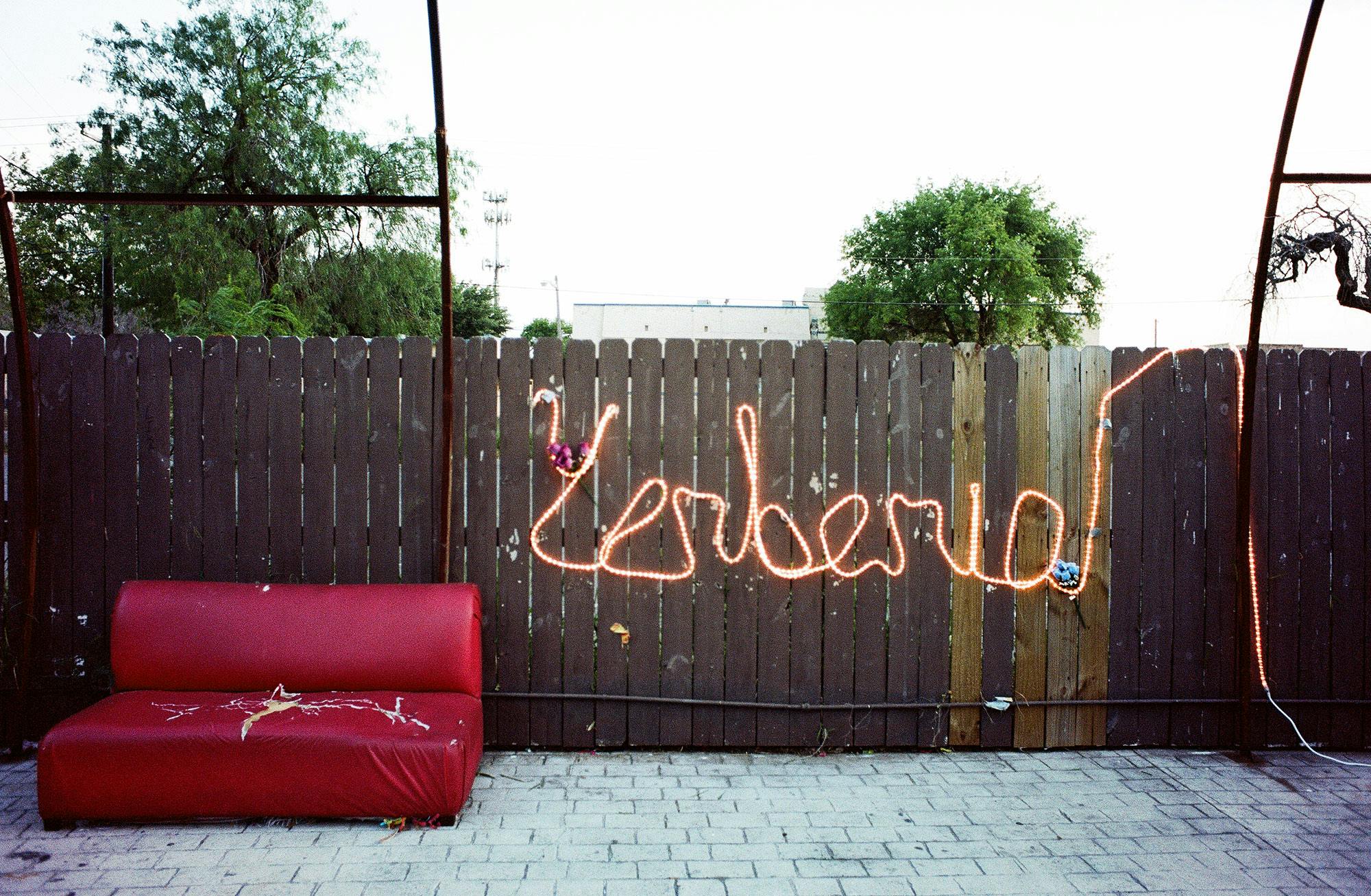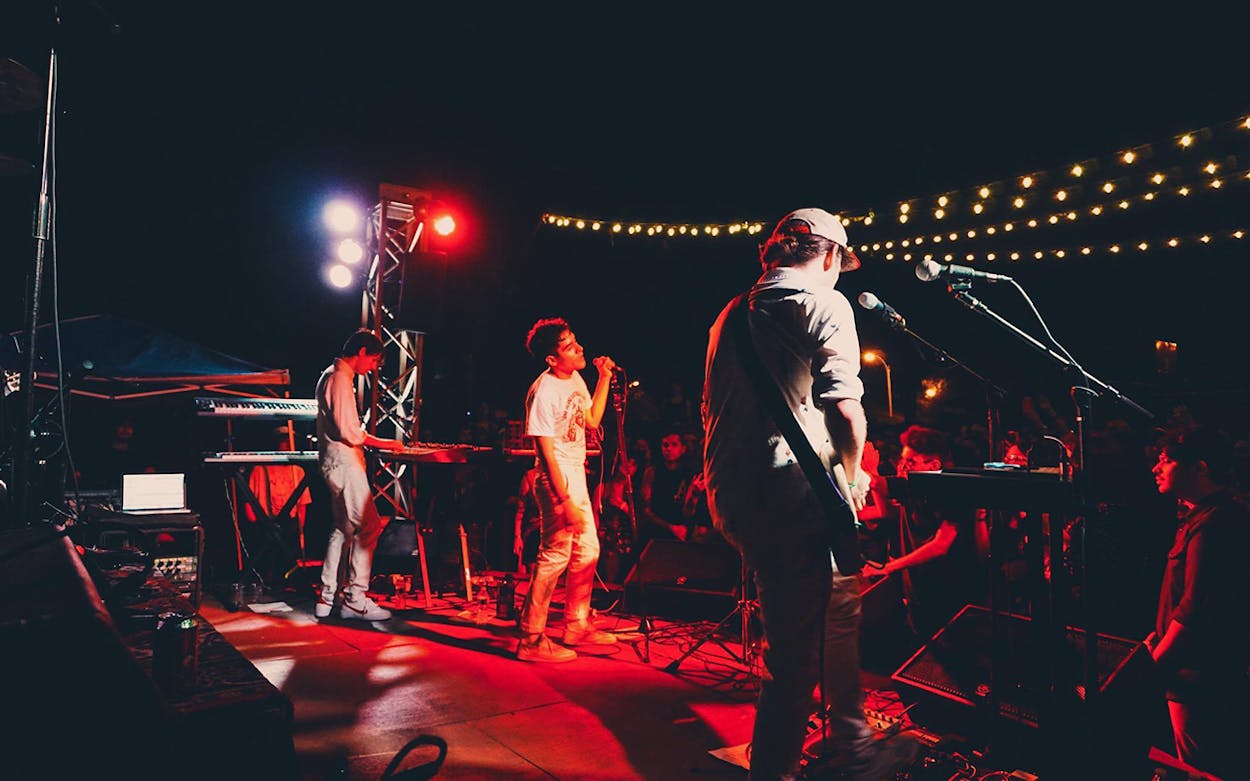This article is part of our November 2017 issue, which a comprehensive look at Texas music.
This is the Valley,” a local musician says, eating chips with me one recent Monday afternoon, in a downtown McAllen spot called Pete’s Super Nachos. “In a city like Austin, it’s easy to have a lot of music scenes and for the people in them not to be aware of one another or intersect. But down here, we all know each other, and most of us play at the Yerb—at Yerberia.”
It was the first time on my trip to McAllen that somebody had brought up Yerberia Cultura, and it struck me that those familiar with it affectionately called it “the Yerb.” There was a time when I knew the music scene in this city well. Back in 2014, after growing up in the city’s punk scene, I published a novella-length collection of stories entitled Death to the Bullshit Artists of South Texas, Vol. 1. What I’d written as an affectionate tribute to my formative Rio Grande Valley music scene was taken as an affront by Valleyites. Only two hundred hardcover copies were made, and I suspect that most of those who objected to it haven’t read the book.
Nevertheless, I find myself keeping tabs on the scene after moving to Austin fifteen years ago, and even three hundred miles north of my old home, you don’t need a cultural dowsing rod to know there’s something powerful and mysterious going on along the South Texas border: the bestial wails of the past have grown into the biggest scene yet. What you need to do to witness it, people said, is sit on Yerberia Cultura’s spacious back patio, on any given night it is open.
Down 17th Street, in historic downtown McAllen, you pass many actual yerberias—stores selling traditional Mexican votive candles, herbs, and home remedies—before finally ending up at Yerberia Cultura. Hoping to avoid music volumes that would drown out conversation, Rick, the polite Yerberia bartender, lets me in before the venue officially opens the door to scenesters and people looking for a good time on Open Mic Night, which brings in a mix of experimental guitar pickers, amateur comedians, and bands only a few weeks old with a couple of songs to their names. Rick scrubs the bar’s glass counter, under which is a collection of witty notes and illustrations that patrons have scrawled on napkins, and he points me toward the back door, where I meet the 32-year-old co-owner, Patrick Garcia.

The sprawling back patio of Yerberia exhibits Day of the Dead décor meets South Texas punk: fragments of a skeleton decoration sit atop a dusty, upright piano around a psychedelic mural, and we sit on the roofless exterior stage as Garcia explains to me the dynamics of Open Mic Nights. “These nights are necessary,” he says, “because they provide people a space to explore something they may have never done publically, regardless of their skill. It’s the context of a leveled playing field for everyone, creatively.”
 Having been in bands before, Garcia recognizes the importance of a venue that exposes locals to diverse out-of-town talent. He says he wants to bring nationally popular bands like Atlanta rockers Deerhunter along with music that appeals to the predominantly Mexican American community, like Mexican cumbia legend Fito Olivares or L.A. four-piece Chicano Batman, reminding young attendants of their Mexican ties and showing them how modern acts are infusing their rock or hip-hop with genres found in traditional South Texas music. He mentions several memorable shows of offbeat performers he’s booked, like Jonathan Richman and Of Montreal, where he witnessed young fans getting their minds blown by acts they wouldn’t normally see in the Valley.
Having been in bands before, Garcia recognizes the importance of a venue that exposes locals to diverse out-of-town talent. He says he wants to bring nationally popular bands like Atlanta rockers Deerhunter along with music that appeals to the predominantly Mexican American community, like Mexican cumbia legend Fito Olivares or L.A. four-piece Chicano Batman, reminding young attendants of their Mexican ties and showing them how modern acts are infusing their rock or hip-hop with genres found in traditional South Texas music. He mentions several memorable shows of offbeat performers he’s booked, like Jonathan Richman and Of Montreal, where he witnessed young fans getting their minds blown by acts they wouldn’t normally see in the Valley.
Watching the first patrons enter as the sound equipment is finally set up, I ask Garcia about his endgame in all this. “I joke a lot about wanting to replicate that dance hall scene from La Bamba, where all these Chicanos are rocking out and dancing to a young Ritchie Valens, before it turns into a huge brawl,” he said. “I mean, violence aside, there were so many nuances of Chicano identity throughout that scene, that movie. Ultimately, I want for us down here to embrace, and even question, every nuance of our identity. And the more the venue can help, in its own weird way, the better.”
Watch: Aquínceañera at Yerberia Cultura, July 18-19, 2015
- More About:
- Music






